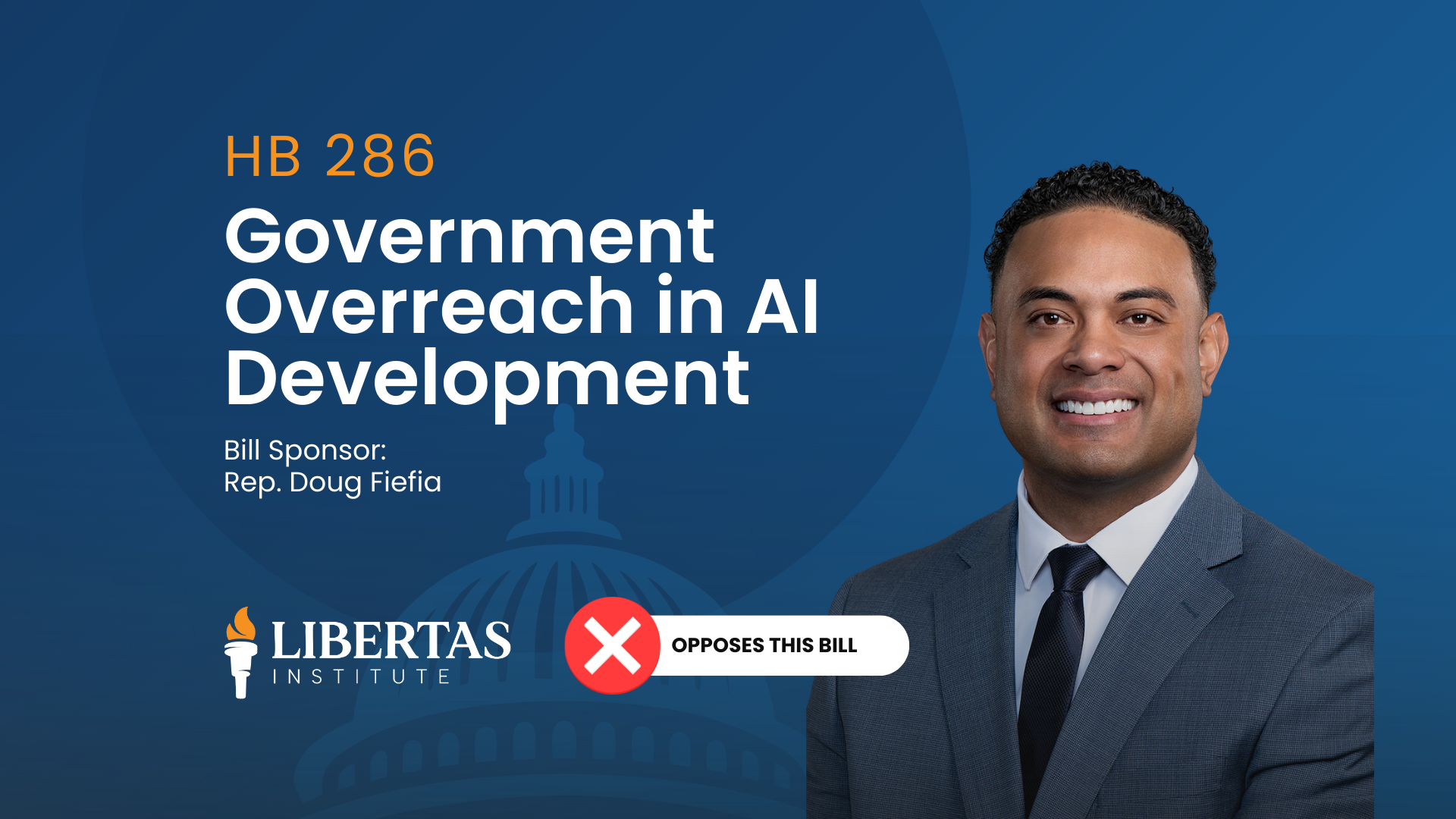This bill did not receive a vote.
Libertas Institute opposes this bill
DNA is a powerful investigative tool and should be available to law enforcement within reasonable constitutional limits. In 2020, Libertas supported House Bill 231, a bill designed to protect Utahns against unconstitutionally broad investigative techniques. Although this bill failed to pass, Libertas remains committed to protecting Utahns privacy rights.
Unfortunately, House Bill 340, sponsored by Representative Steve Eliason, would begin to legitimize law enforcement’s use of unconstitutional investigative tactics. This bill allows police to potentially pressure private companies into turning over sensitive consumer information without a warrant. It enshrines into law the “fishing expeditions” police currently use to search public databases containing sensitive DNA information.
HB 340 is problematic for three reasons. First, this bill allows law enforcement to request DNA searches from private companies that primarily serve consumer genealogical needs. Second, the burden of proof necessary for law enforcement to make these requests is low and requires no judicially approved warrant. Lastly, this bill allows law enforcement to obtain DNA from third parties without voluntary consent.
It is unclear how many requests would be made to genealogical companies, but given the low burden of proof for sending requests, it is reasonable to presume the number would be significant. HB 340 allows law enforcement to request a DNA search if investigators “reasonably believe” a search would further an investigation by revealing the identity of a victim or criminal perpetrator. This low barrier suggests it could happen often.
Some may counter, stating the bill does not require private companies to run a DNA search. However, private entities are sensitive to government demands, particularly from law enforcement. Every time a private company receives a request for a DNA search, the company is forced to divert time and resources away from the purpose of its business to address law enforcement demands. Because requests for searches are not accompanied by a judicially approved warrant, this puts private companies, such as 23andme and Ancestry, in the position of either fighting law enforcement requests or compromising the constitutional rights of their customers.
Further, if their refusal is challenged in court, a judge might look at a bill like this (if it were to become law) and be persuaded that private companies should be compelled to provide this sensitive genetic information even though officers have no specific suspect and want to use these private databases to conduct “fishing expeditions” in the hopes of finding a matched person. Though the bill as written does not compel private companies to respond to the “requests” of law enforcement, the language of the law, if passed, might persuade a judge to interpret the Legislature’s intent as supporting the ability of law enforcement to use these databases for bulk search purposes.
In the bill, requirements placed on law enforcement before requesting searches amount to paper guardrails that, in practice, do not limit the use of requests to pressure private companies to disclose private consumer information without constitutional protections. The bill sets up a “process” by which officers can make their requests in search of a DNA match. But if the process is easy to navigate and its hurdles so low that any officer can overcome them, what is the point of the bill? Our worry is that it would codify the worrisome status quo and convey to the public that DNA privacy is of little concern to the Utah Legislature.
What is the process in HB 340? First, law enforcement may not request a DNA search from a private company if a routine search of CODIS (the government’s database) turns up relevant information. This fails to protect individual rights because there is no circumstance in which police would send a request for information they have already obtained. This is effectively a redundant and unnecessary hurdle in the process.
Instead, law enforcement, in consultation with prosecutors, would determine whether it is appropriate to submit requests to private companies seeking information from their databases. Indeed, the law requires law enforcement to assess whether a delay in the running of a DNA search would “create a critical risk to public safety.” This phrase is too vague to have specific meaning and will result in inconsistent application based on the interpretation of various county officials.
Furthermore, given that law enforcement’s function is to preserve public safety, HB 340 places decisions impacting individual rights into the hands of those most likely to broadly interpret the law’s application. In other words, it’s in law enforcement’s interest to always grant themselves permission to seek this private information. Without judicial oversight, the officer and prosecutor can easily agree with each other and proceed with the request.
Lastly, HB 340 allows law enforcement to secretly collect DNA samples from individuals who are not suspected of a crime. In situations where police and prosecutors believe obtaining voluntary consent from these individuals (relatives of the suspect they’re after) would “compromise the integrity” of their investigation, this bill allows for the covert collection of their DNA for the purpose of analyzing the DNA for kinship inferences. This effectively turns relatives into “genetic informants” against their family members.
Although the bill requires a warrant before law enforcement may request a genetic search of the third-party DNA sample, the proposed legislation fails to recognize that the collection of the DNA itself is a search and should be subject to constitutional protections.
Utahns should not be subject to unconstitutional investigative police practices. The Fourth Amendment protects against unreasonable searches and seizures for a reason. For Utahns to truly remain secure in their persons, papers, and effects, they must be free from the possibility of the state weaponizing their DNA in a manner that violates constitutionally protected rights.




